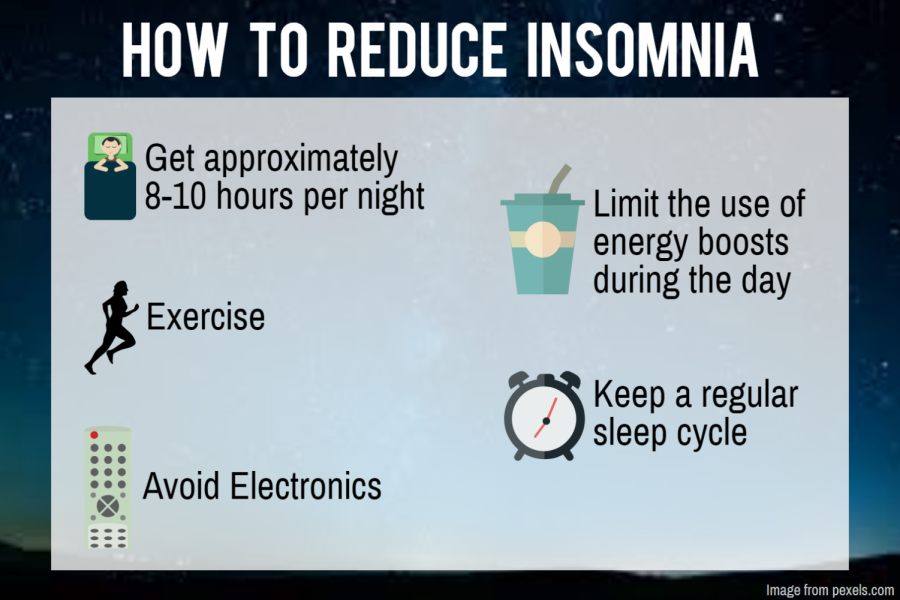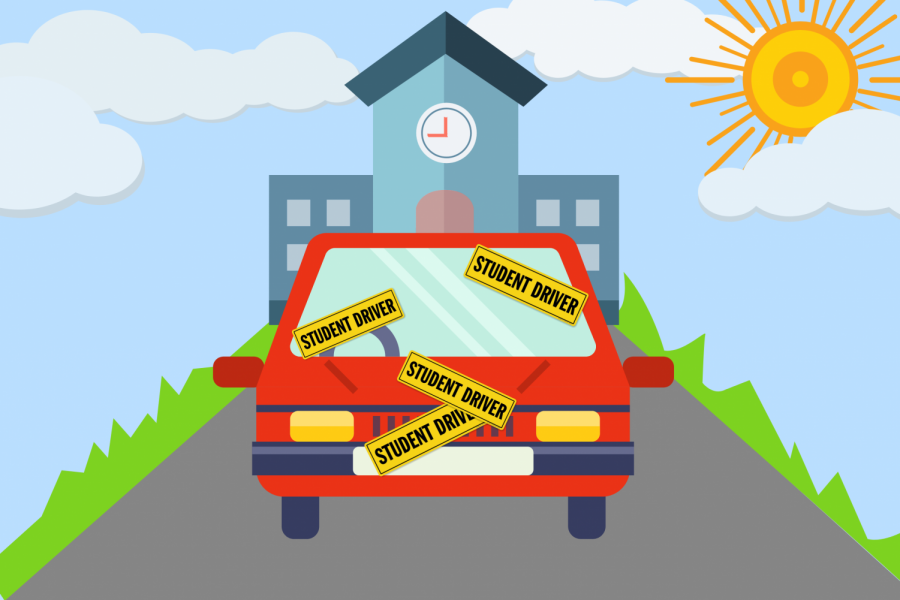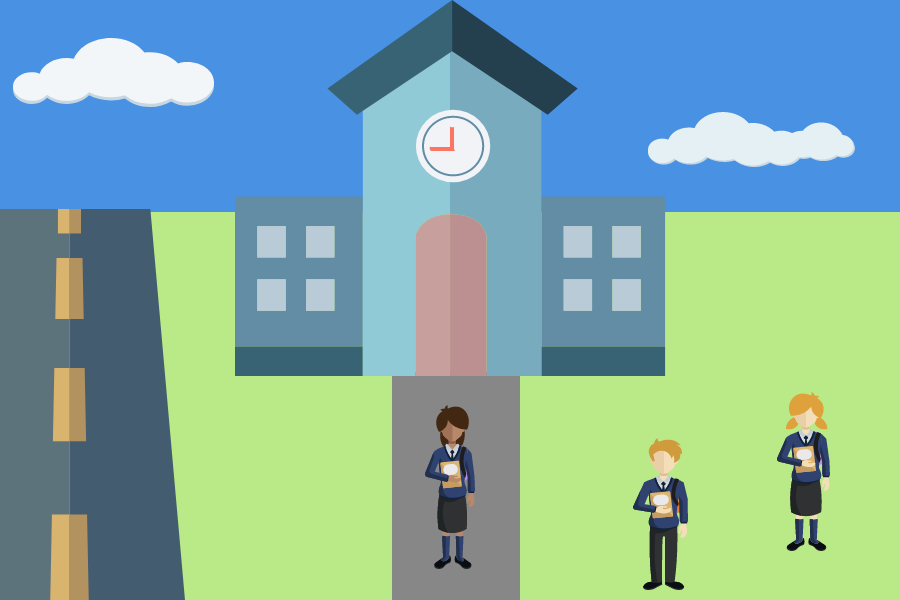Sometimes counting sheep doesn’t help: methods when struggling with insomnia
October 25, 2018
Tick, tock.
Did I finish all my homework?
Tick, tock.
What time is it?
Tick, tock.
My battle with insomnia started in ninth grade. With loads of homework, stress and high school drama, it became increasingly hard to fall asleep at night. During the day, I struggled to keep my eyes open and focus on each assignment.
While my battle with insomnia is clinical, at Whitman, the lack of sleep is universal.
The National Institute of Health advises teens to get approximately 8-10 hours of sleep per night, but only 9 percent of middle and high school students meet this goal, according to the NSF. In fact, as reported by an additional 2006 survey by the NSF, about 87 percent of high school students are on the borderline of being sleep deprived or chronically sleep deprived. A 2017 study found that 40 percent of adolescents sleep less than 7 hours at night.
Whether you have insomnia or are just struggling to get enough sleep, The Black & White looked into some of the best ways to fall asleep with ease.
- Exercise
Physical exercise not only keeps you fit and healthy, it improves sleep quality and increases sleep duration as well. It also reduces stress and will tire you out faster, leading to a deep night’s sleep.
“Research is very solid around exercise,” Psychologist Rebecca Resnik said. “It may be the last thing you want to do but it is one of the best things to do for sleep.”
- Avoid electronics near bedtime
Some psychologists recommend avoiding your electronics, like phones or computers, at least an hour before you head to bed. Electronics emit blue light, which prevents the release of melatonin and makes it difficult to fall asleep. iPhones have a feature, known as Night Shift, that uses the clock and geolocation of an iPhone to shift your display colors into warmer hues. By doing this, the blue light isn’t as disruptive.
- Limit the use of energy boosts during the day or sleep aids at night
While a morning cup of coffee doesn’t hurt, it’s important to avoid having a stimulating drink (coffee, Redbull, etc.) during the afternoon because it can keep you up later in the evening.
Quick fixes for problems with falling asleep, like the sleep aid NyQuil, can also be detrimental over time. Approximately 37.5 percent of Whitman students have used a sleep aid before and about 16.8 percent regularly take them, as reported in another B&W article.
“Your over-the-counter sleep aids are not a good solution,” Resnik said. “People often will turn to medications for an okay fix. Taking melatonin supplements will help you fall asleep, but won’t guarantee a good night’s rest.”
- Keep a regular sleep cycle
Lastly, having a consistent bedtime and wake up time will improve your ability to fall asleep. Because our bodies are rhythmic when it comes to sleeping, when you get the same number of hours each night, you’re more likely to stay alert and awake.
Getting a good night’s rest shouldn’t be dependent on the number of tests that week or juggling after-school activities. If you’re struggling to fall asleep at night or wake up early in the morning, it’s important to talk with the school counselor or your parents.











